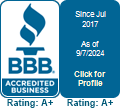Hi Stephanie,
I’m turning 65 in October and I’m being told by my friends that I need to enroll into Medicare or I will get penalized. Is that true? I’m currently funding my HSA (Health Savings Account). I don’t plan to retire until I’m 67. Can you guide me? I’m confused. Sara from Sugar Land
Answer:
Hello Sara,
Many (if not all) Americans are easily confused when it comes to Medicare. It’s likely that your friends have different circumstances or health issues when it comes to their Medicare plan, so it’s important to remember that one shoe does not fit all. Here is the advice I can give you: if you plan to work until you are 67 years of age, you do not have to do anything as of now.
However, when you retire, here’s the plan: 6 months before you decide to retire from your current employer or enroll into Medicare, you must STOP funding your Health Savings Account. Otherwise, you will be subject to a tax penalty fee by the IRS.
The best advice that I can give you is to NOT apply for COBRA insurance through your employer when you retire. This is because Medicare does not consider COBRA insurance to be true creditable coverage, and you could then be subject to a penalty fee if you miss your deadline. With that said, here’s the procedure:
You must have a social security form filled out (a REQUEST FOR EMPLOYMENT FORM) by your current employer. This will indicate that you have been working all this time, and that you have been under group health insurance coverage. Once you have this form filled out, write on the top in RED letters “Special Enrollment Period.” You will then have an 8 month window to join both Part A and Part B of Medicare, in addition to a 63 day window to join part D in order to avoid penalty fees.
By filling out this form, you will not be subject to any Medicare penalty fees. You will have to go down to the social security office to apply in person, and when you do, be sure to get copies of everything that social security does at the time of your appointment in order to ensure that you are properly enrolled into Medicare Part A and Part B. Doing this will ensure that you do not incur life-long penalty fees.
Lastly, an important thing to know (especially if you have health issues) is that at the time of enrolling into Medicare, you qualify for a Special Enrollment Period. This special period allows you to enroll into any Medicare Supplement Insurance Plan without having to answer any medical questions. It’s extremely important to get this done right, or you may never be able to obtain an affordable supplemental plan.
If you’d like to call me to request a supplemental insurance quote, please do. I shop the market in order to find the most affordable rates with the same standardized coverage. You are also welcome to sign up on our website and receive monthly newsletters on the changes in Medicare Supplement Insurance at www.sylegacy.net.
Best Regards, Stephanie Salcedo



.png)

